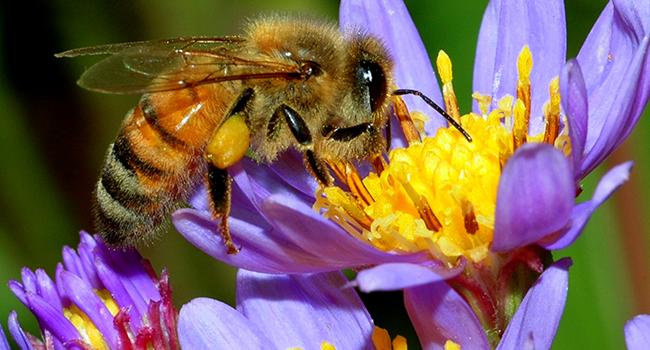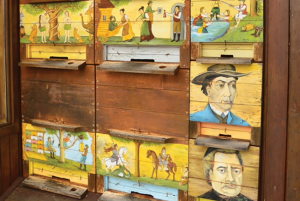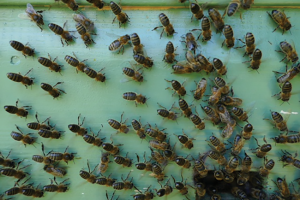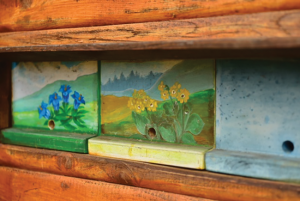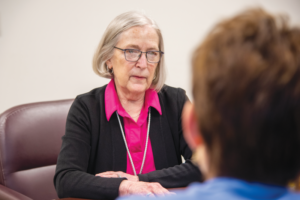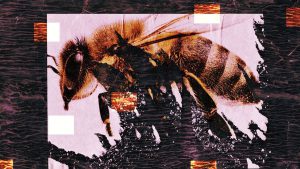By: Ann Chilcott
World Bee Day? Yes, it’s official.
On the 20th December 2017 the United Nations (UN) General Assembly adopted a resolution declaring 20th May World Bee Day. Every year on this day the global public will have their attention focussed on the importance of preserving honey bees and all other pollinators, and people will be reminded of the significance of bees in providing for the needs of humanity. They will also be invited to take positive action to preserve and protect pollinators.
All UN member states supported the resolution with 115 states effectively becoming co-sponsors. These countries include: USA; Canada; China; Russia; Brazil; Argentina; Australia; India and all European Union (EU) members.
Along with many other leading world figures, Pope Francis 1., current Pope of the Roman Catholic Church, declared that he welcomed the World Bee Day initiative which is all about raising awareness of the importance of bees and apicultural products. It is about protecting and supporting bees alongside the beekeeping sector. Equally important is actively contributing towards alleviating global poverty and eradicating hunger whilst preserving a healthy environment and its biodiversity.
The idea for a World Bee Day was conceived at 06:30 hours on 15th September 2014. Slovenian beekeeper Bostjan Noc was driving to work at The Slovenian Beekeeper’s Association where he is president, listening to a radio programme about World Days and their meaning and he wondered why bees didn’t have their own day. Considering that every third spoonful of the world’s food relies on bees and other pollinators, and that bees are increasingly endangered and almost no longer able to survive without human interventions and support, it seemed only right that the global public should be made aware.
It took a tremendous amount of work and effort to make it happen but, with the support of Slovenian beekeepers and government departments, three years later Bostjan’s seemingly unattainable goal was achieved.
Placed in the center of Europe and sharing borders with Italy, Austria, Croatia and Hungary, Slovenia is one of the top beekeeping countries in the world with every 200th inhabitant a beekeeper. For tens of thousands of Slovenian citizens beekeeping is a way of life with a very long tradition and its importance is also seen in the beautifully painted hives which are commonplace in that country. This country is home to Apis mellifera carnica, the Carniolan bee which developed 10,000 years ago in the valleys of the Karavanke mountain range on both sides of the border between Austria and Slovenia.
Slovenia became one of the first countries in the EU to prohibit the use of certain pesticides harmful to bees, which reflects the genuine respect for bees at all levels, from government down, in that country.
May was the chosen month for World Bee Day because in the northern hemisphere the need for pollination is greatest during that period, whilst in the southern hemisphere it is a time for harvesting honey and bee products. The Slovenians honoured their national beekeeping “treasure” Anton Janša (1734-1773) by choosing his birthday, May 20th, to celebrate World Bee Day.
Janša was a pioneer of modern beekeeping and one of the greatest experts of his time. Appointed by Austrian empress Maria Theresa in 1770 to prestigious employment as the imperial and royal beekeeping teacher based at a new beekeeping school in Vienna, Janša became the first beekeeping teacher in the world. His teaching remit also involved travelling around the country. He shared his knowledge of bees through writing beekeeping books and his students followed his teachings in various new beekeeping schools which were set up throughout Austria.
It was common practice at that time to kill off most of the bee colonies before Winter and then harvest their honey, but Janša wrote in one of his books, “I do not kill bees to get honey and wax. I keep them strong and healthy, so they will bring me honey again next year.”
We have come full cycle back to focussing on sustainable living and I’m certain that Janša would approve of our endeavours.
What will you do to celebrate World Bee Day this year?
I’m contemplating making a honey cake and inviting friends round to raise funds for Bees for Development which is a charity based in Wales, UK, that has been working tirelessly for 25 years to promote beekeeping to combat poverty and protect biodiversity. Bees can give people the means to pay for food, and their children’s education, and to improve their land and crop yields. In the past two years 650 people in Ethiopia have been trained in beekeeping by this charity that relies on donations from the public. In the USA, Megan Denver of Hudson Valley Bee Supply is the American representative for Bees for Development and donations may be made via megan@hudsonvalleybeesupply.com
I shall be making a light honey sponge cake with rich Italian marscapone cream cheese. Ideally chestnut honey is chosen because of its rich nutty flavour but, with it being hard to obtain in the Scottish Highlands, I shall be going for something different like a heather/ragwort mixture. Any flavoursome honey will do.
Alternative suggestions for celebrating World Bee Day:
- Plant bee-friendly shrubs or flowers in your garden
- Make some homes for bumble bees and solitary bees
- Talk to at least 10 people about bees during the day
- Dress up as a bee/wear clothes with bee motifs
- Support a beekeeping/environmental charity
- Organise a bee joke competition
- Alert all your contacts on social media to World Bee Awareness Day
Have fun.
For more information contact: http://www.worldbeeday.org
http://www.beesfordevelopment.org
USA Donations via megan@hudsonvalleybeesupply.com
http://www.bumblebee.org (making bumble bee homes)
http://www.fs.fed.us/wildflowers/pollinators/gardening.shtml (gardening for bees)
Light Honey Sponge Cake with Marscapone
Recipe for making a 20cm/8inch cake:
- Butter for greasing
- 4 medium sized eggs at room temperature
- 150g/4oz superfine sugar
- 90g/3oz honey
- 150g/5oz self-rising flour
- 2 tsp butter melted in 2 tbsp hot water.
Topping
- 500g/1lb marscapone
- 2.5 tbsp honey
Preheat the oven to 175˚C/350˚F. Grease a 20cm/8inch diameter deep sponge tin with butter.
Beat the eggs and sugar till pale, fluffy and doubled in volume and the sugar is dissolved. Continue beating and slowly pour in the honey in a continuous stream.
Sift the flour twice then sift again into the egg and honey mixture. Fold in quickly with a metal spoon then fold in the butter and hot water.
Pour the mixture into the sponge tin. Bake for 20-25 mins until the sponge is a rich golden brown and an inserted skewer or pointed knife comes out clean. Allow to cool for five to eight mins before turning out onto a cooling rack.
To make the topping, mix the marscapone and two tablespoons of honey together.
When the sponge is cool, slice it horizontally with a bread knife. Place the base on a serving plate and spread it with half the marscapone mixture. Replace the top and spread with the remainder of the mixture. To decorate, drizzle the remaining honey over the top to create swirls.






